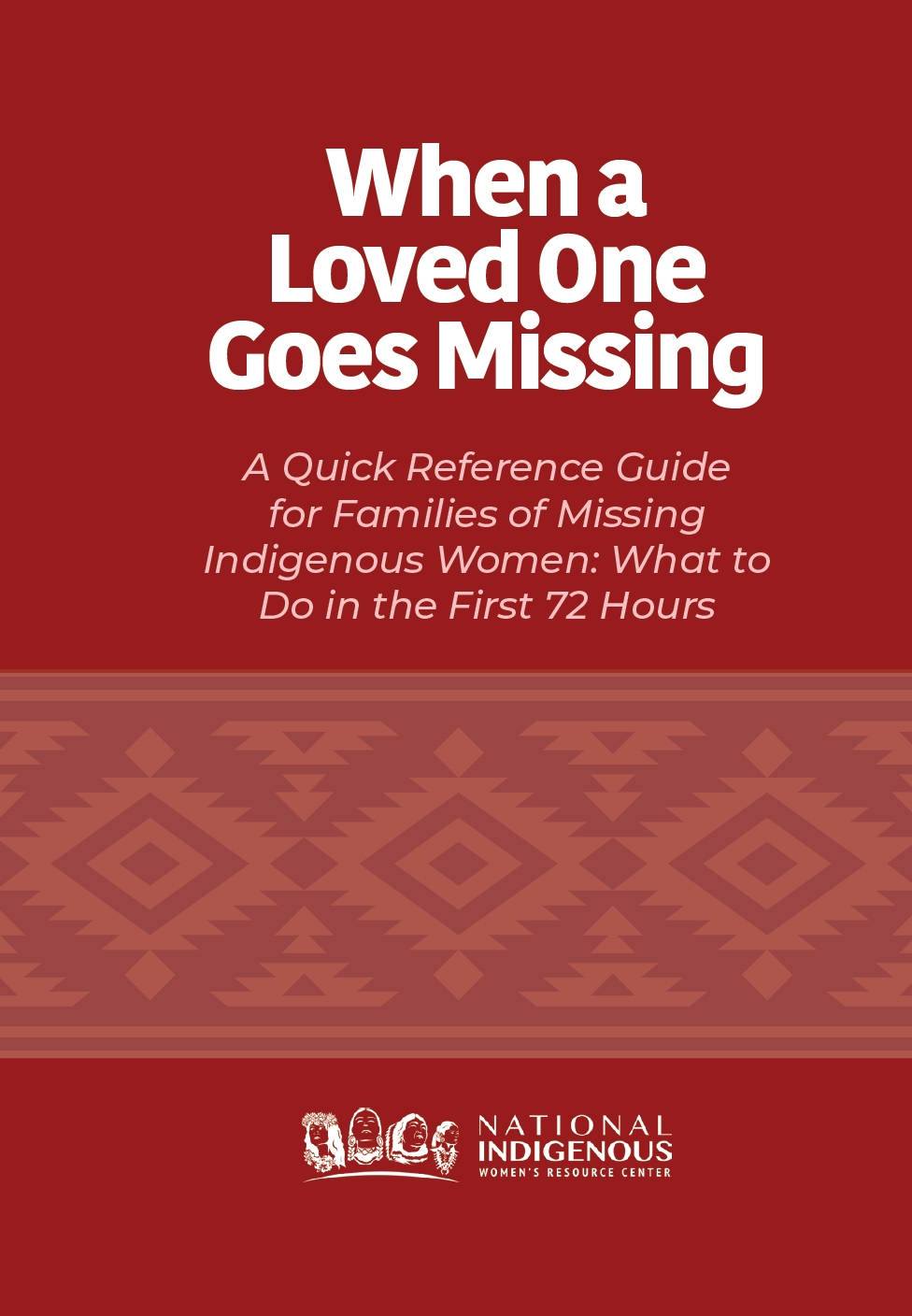Booklet
When a Loved One Goes Missing: A Quick Reference Guide for Families of Missing Indigenous Women: What to Do in the First 72 Hours

To download the booklet, please see the sidebar on this page or click here.
About this Resource
The information provided in this guide does not, and is not intended to, constitute legal advice. Readers of this toolkit should contact an attorney to obtain legal advice.
This guide is not meant to encourage families to take on law enforcement responsibilities, including collecting and preserving evidence. Families can keep records and documentation to share with law enforcement, such as a timeline, a record of a person’s first-hand experience, court documents, or prior police reports. Chain of custody issues may arise from interference with a potential crime scene.
Due to the historic and often inadequate response from law enforcement, this guide was designed to assist families and advocacy organizations in responding when a Native woman goes missing. It provides information about immediate steps that can be taken in the first 72 hours after a person goes missing, especially where the law enforcement response is non-existent or non-responsive.
While this guide aims to provide steps toward an ideal response, the outcome may or will depend on the resources and training of local law enforcement and service providers. Many families have expressed anger, frustration, and disappointment in the lack of resources, knowledge, handling, and inconsistent communication and coordination of case details and investigations.
These steps may or may not be relevant in every community.
NOTE: Please view When Your Child Is Missing: A Family Survival Guide, which can be accessed online at bit.ly/3kAclsT to address how to respond when someone 17 or younger goes missing, which involves a unique set of laws, policies, and other resources.
Time is of the essence when someone you love goes missing. Do not delay – take these important steps to make every second count:
- Contact local law enforcement.
- Gather information and keep records/documents for use, as needed.
- Ask a family/friend/advocate for support for yourself.
- Enlist the help of your family, community, victim services, Tribal Coalitions (https://www.atcev.org/tribal-coalitions/), or grassroots organizers.





